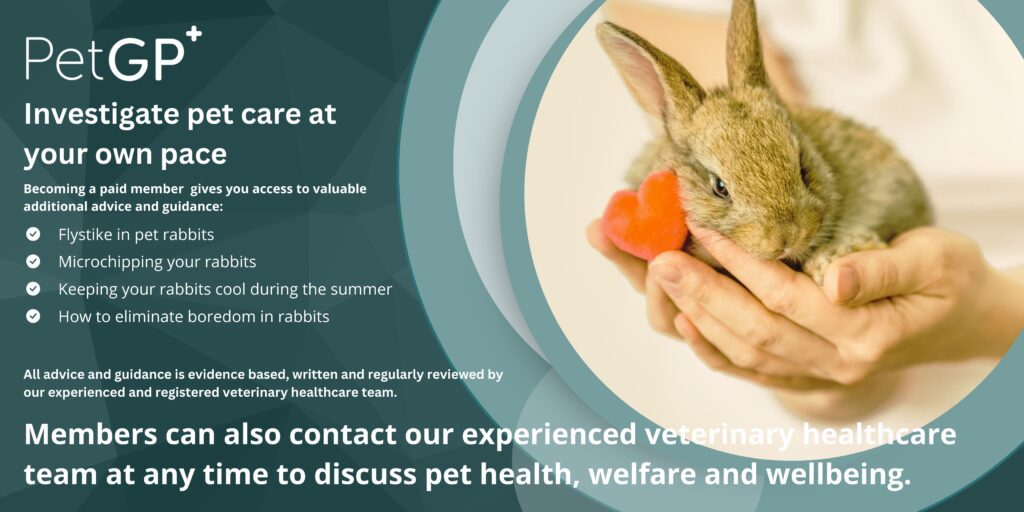Top tips for new rabbit owners
Rabbits are often misunderstood and have complex needs. It is important to research they type of rabbits you wish to own and the environment and care they need. This will help you to have a long, happy and healthy time together.
Once you’ve done your research and chosen the right type and breed of rabbit for you. It is important to understand that rabbits should be homed in pairs or groups. You need to ensure you have the time, money and commitment to look after them over the next 10-12 years. You are not buying pets for small children or for a Christmas, Easter or holiday present.
Plan ahead for your new rabbits' needs.
Preparation is very important when bringing rabbits home for the first time. Rabbits are highly social, intelligent, prey animals and can become stressed very easily. Setting up the accommodation and getting the correct food, forage, bowls, bottles and enrichment organised before your rabbits come home, means a much easier transition for them.
Find out what the rabbits’ current routine is. What are they being fed, bedded on and how they are being housed. Any changes in food or environment need to be adjusted slowly. This avoids excess stress and adverse health effects. Initially try and stay as near as possible to the previous environment.
Healthcare requirements for your new rabbits.
It is advised to have pet health insurance in place and your new rabbits registered with your local vet before you bring them home. Accidents and illnesses can happen, and it is essential that you are ready and able to deal with them quickly. Neutering is always advised. The breeder, rescue centre or store can tell you whether your new pets need any vaccinations or other preventative care.
Your new rabbit’s environment.
Your rabbits need permanent access to an area of at least 3m long x 2m wide x 1m high. They are most active in the early morning, late afternoons and overnight. This enclosure can be a hutch and run, a garden shed or a room in the house.
If living outside, the hutch and run need to be carefully set up. It is important to take care with security to avoid escape and predators gaining access (foxes, badgers, cats). You also need to assess any plants present to avoid toxicity issues. Make sure that the enclosure is not in full sun at any time of day. Also ensure there are shaded areas present.
Indoor hutches need to be big enough for the rabbits to move about and be able to get away from each other. Areas that the rabbits can access in the home need to be cleared of anything that can harm them. Remember rabbits like to chew – electric cables need hiding and floor coverings, door frames and skirting boards can cause gut problems if they are ingested.
You could bring some of the cleaner bedding from the rabbits’ previous housing to help settle them in with familiar smells.
Microchipping your new rabbit.
It can be very difficult to reunite escaped and found rabbits with their owners. Rabbits are good at squeezing through small holes or digging under fences. They are regularly brought into vets to try and find the owners. A microchip will allow a fast reunion with the owner. It is easily implanted and allows peace of mind.
Diet and feeding.
Always ask the breeder, rescue centre or store what diet your new rabbits are being fed. It is very important to never change the food suddenly. It takes a long time for the gut of a rabbit to adjust to a different diet. During this process they can develop diarrhoea and become very unwell if the change is sudden. Most rabbit breeders or rescue centres will send you home with a bag of food. Its a good idea to find out what food they are eating beforehand, so that you can be prepared.
Rabbits also need to eat large amounts of forage – hay and/or straw, so checking which type the breeder, rescue centre or store is offering will again allow you to get a similar type in at home. Details of green foods being offered will also allow you to continue on a similar diet at home to minimise the risk of reaction to abrupt dietary change.
You can change your rabbits’ diet once they have settled in but do make sure to do it very slowly and carefully over a few weeks.
Appropriate toys for your new rabbit.
There is a wide range of enrichment toys for your new rabbits. Rabbits are very inquisitive, playful and can be destructive as they need to gnaw, so need plenty of things to play with and chew. These things do not need to be shop bought though. Cardboard tubes from toilet rolls and kitchen rolls to destroy, cardboard boxes to hide in and sticks from fruit trees, hazel or willow to chew are all easily found and will keep your rabbits engaged for ages. Tunnels, balls, and woven willow toys are also widely available and readily used.
Rest and relaxation.
Your new rabbits will need times to rest and relax from attention and handling. Rabbits are at their most active at dawn and dusk and tend to rest through the day, so try and make times for attention and handling within those active periods.
Handling should be at a minimum when your rabbits first come home. Just being near them and allowing them to come to you will help to build up trust and confidence in you.
Behaviour.
Be mindful of behaviour that you encourage or allow during the early days of owning you rabbits. The boundaries that are set early on, will persevere and can be very difficult to change later. So, if you allow you rabbits to chew the furniture when they first arrive, instead of gently moving them away and giving them something suitable to chew, they will continue to chew it.
Mental wellbeing.
Rabbits are easily stressed, so it is important to try and make the change of home as smooth as possible. Keeping the food, bedding and routine as close as possible to what they were before can help keep the rabbits’ calmer while they get used to their new surroundings. Changes can start to be made after a few weeks when the rabbits are settled and bonding with you. All dietary changes should be made slowly.
Don’t be afraid to ask for advice.
Having new rabbits is exciting and rewarding, but it can be challenging too. If you are struggling with any aspect of your new pets’ health or behaviour, then contact your vet for advice.
After researching and choosing your new rabbits, it is important to understand their needs. It will be your responsibility to meet those needs for the rest of their lives. What nutritional requirements do they have? Do they have any behavioural needs? How will you ensure adequate healthcare and preventive treatment? What environment do they require to grow and develop safely and comfortably? If these needs can be met, then you will automatically safeguard the mental wellbeing of your pets. Planning and preparation will allow your new rabbits to lead a happy and healthy life.

